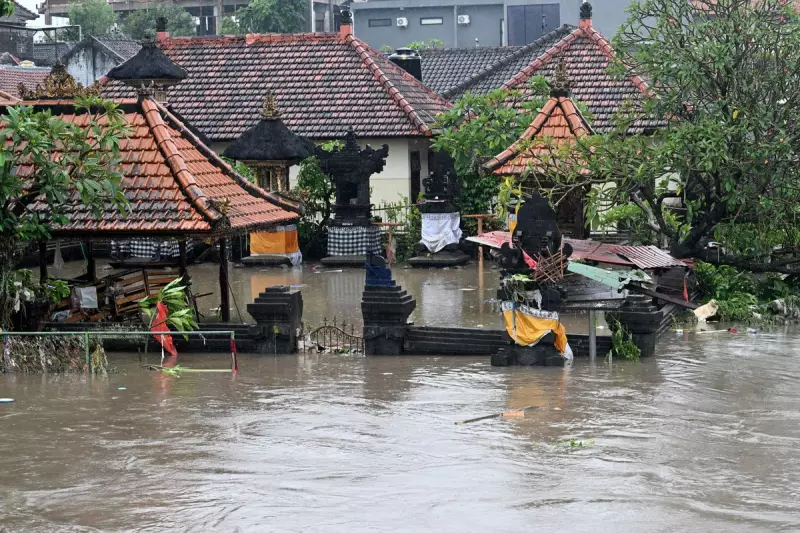
Bali's idyllic image is facing a stark reality check as the Indonesian government takes drastic action to curb a growing environmental crisis. In a decisive move, authorities have announced an immediate freeze on permits for new hotels, restaurants, and other tourism-related businesses in the island's most congested areas.
The permit suspension, affecting the bustling southern regions of Badung and Denpasar, comes as a direct response to severe flooding that has repeatedly paralysed parts of the island. Officials point to unregulated construction as a primary culprit, with concrete structures and paved-over land preventing rainwater from being absorbed naturally into the ground.
A Paradise Underwater
Recent months have seen dramatic scenes of flooded streets, with water levels in some areas reaching waist-high. The floods have not only disrupted daily life for residents but have also stranded tourists and caused significant economic damage to local businesses. The situation has highlighted the fragile balance between economic growth and environmental sustainability.
"The main cause is the shrinking of water absorption areas due to massive development," stated a senior official from the Public Works and Housing Office. The message is clear: the unchecked expansion of Bali's tourism infrastructure is literally sinking the island.
Targeting the Tourist Heartland
The moratorium is strategically focused on the districts that form the epicentre of Bali's tourism industry. This includes world-famous areas like Kuta, Seminyak, and Canggu—precisely the zones experiencing the most intense development pressure. The freeze will remain in effect until a comprehensive evaluation of the island's carrying capacity and drainage systems is completed.
This isn't the first time Bali has grappled with the side effects of its own popularity. The island has previously declared a "moral emergency" over cultural degradation and introduced a tourist tax to fund environmental and cultural preservation projects. The permit freeze represents the most significant regulatory intervention to date.
What Does This Mean for Tourism's Future?
For travellers, the immediate impact may be minimal, as the freeze applies only to new construction. However, it signals a pivotal shift in how Bali intends to manage its future. The move pushes developers and investors towards less-developed regions of the island, potentially spreading the economic benefits of tourism more widely while alleviating pressure on the south.
This policy underscores a global challenge for popular destinations: how to reap the economic rewards of tourism without sacrificing the very environment and quality of life that attract visitors in the first place. Bali's bold step will be closely watched by other nations facing similar dilemmas.





